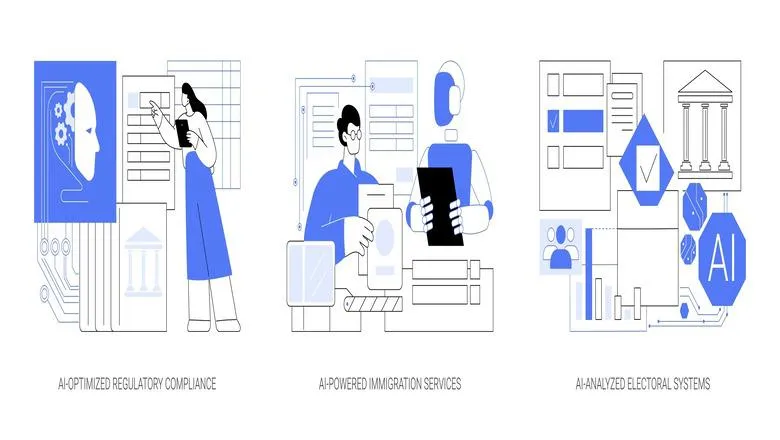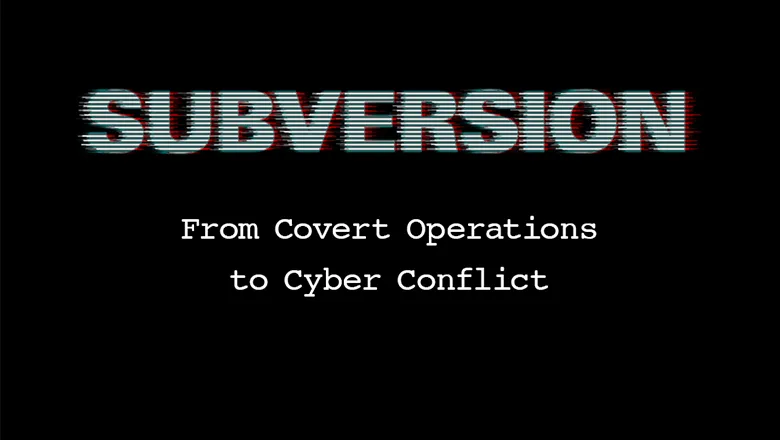Dr Lilly Pijnenburg Muller
Lecturer in Security Studies
Biography
Dr Lilly Pijnenburg Muller joined King's as a Lecturer in Security Studies in 2024 after working in the Science and Technology Studies department at Cornell University, as a Fulbright scholar in 2022–2023. She is an interdisciplinary researcher in critical security studies and science and technology studies (STS) with interests in technology, the politics of (in)security and power. She has been contributing to a new research agenda of critical cybersecurity and on science and technology studies and security studies.
Research Interests:
- Critical War and Security Studies
- International Political Sociology
- Science and Technology Studies
- Emerging technology
Lilly is currently writing a monograph on cybersecurity as a sociotechnical practice in world politics. The book traces the sociotechnical making of threats and its impact on (in)security. This analysis is centred on threat intelligence organizations, a body of cybersecurity experts, that both create knowledge of threats and security there against.
She has also contributed to a new research agenda on fusing science and technology studies with critical security studies, and a research agenda for a critical approach to cybersecurity.
Her work focuses on emerging technology in changing security practices and, recently, the role of technology in the development of AI in security practices.
She is developing a new project on the role choice in machine learning and the expansion of datafication in governance.
Examples of research funding:
- Cornell University – King’s College London Global Strategic Collaboration Awards 2023-2024 with Assistant Professor Rebecca Slayton (STS, Cornell University) and Assistant Professor Kovali Coopamootoo (Informatics, KCL)
- Fulbright scholarship, Cornell University, 2022-2023
- Full doctoral ESRC studentship, London Interdisciplinary Social Science Doctoral Training Partnership (LISS DTP, 2019-2022)
- Norwegian ministry of Defence, NATO and cybersecurity 2018
Publications
Journal Articles
- Muller, LP (2024) ‘Cybersecurity in Practice: The Vigilant Logic of Kill Chains and Threat Construction.’ European Journal of International Security, 2024, 1–21. https://doi.org/10.1017/eis.2024.27.
- Slayton, R and Muller, LP (2024) ‘Coordinating uncertainty in the political economy of cyber threat intelligence’Social Studies of Science.
- Muller, LP and Welfens (2023)‘(Not) Accessing the Castle: Grappling with Secrecy in Research on Security Practices.’ Secrecy and Society3(1) https://doi.org/10.55917/2377-6188.1073
- Coles-Kemp, Lizzie., Dunn Cavelty, Myriam. Dwyer, Andrew., Muller, Lilly., Stevens, Clare, Thornton, Pip (2022) ‘What can a critical cybersecurity do?’ International Political Sociology. 16(3). https://doi.org/10.1093/ips/olac013
- Bromander, S., Muller, LP., et al. (2020)"Investigating sharing of Cyber Threat Intelligence and proposing a new data model for enabling automation in knowledge representation and exchange." Digital Threats: Research and Practice. DTRAP
- Muller, L.P (2019). Inn i gråsonen: avskrekking som forsvar av cyberspace?. Internasjonal Politikk, 77(3): 288–295. http://dx.doi.org/10.23865/intpol.v77.1397
- Muller, L.P. (2016) ‘Public Private cooperation to secure cyberspace’ In Friis and Ringsmose, Conflict in cyber space: Theoretical, strategic, legal and ethical implications (pp. 56-78). London: Routledge
- Muller, L.P. (2016) “Makt og avmakt i cyberspace: hvordan skal vi styre det digitale rom?” [ Power and lack of power in cyberspace, how can we govern cyberspace?] International Politikk. Vol 74, No 4
Reports
- Muller, L.P. (2019) “Military Offensive Cyber-Capabilities: Small-State Perspectives. NUPI Policy Brief January http://hdl.handle.net/11250/2583385
- Muller, L.P et al (2018) Cyber-weapons in International Politics : Possible sabotage against the Norwegian petroleum sector. Nupi Report. http://hdl.handle.net/11250/2486814
- Muller, L.P. and Stevens, T (2017) “Upholding the NATO cyber pledge: Cyber Deterrence and Resilience: Dilemmas in NATO defense and security politics” NUPI Policy Brief 15.mai http://hdl.handle.net/11250/2442559
- Muller, L.P. (2017) “What is the Point of Multi-stakeholdersim?” Power Rules in Global Internet Governance. NUPI working paper 881
- Muller, L.P. (2017) “On the Digital Wave: Public-private cooperation for cyber-capacity building in the developing word. NUPI Working paper 883
- Bada, M., Muller LP. et al (2016) “Cyber Security Capacity Review of the UK” Global Cyber Security Capacity Building Center, University of Oxford, November 2016
- Muller, L.P. (2015) ‘Securing Cyberspace. Coordinating Public-Private Cooperation’. NUPI Policy Brief No. 20.
- Muller, L.P. (2015) ‘Cyber Security Capacity Building in Developing Countries: Challenge and Opportunities’. NUPI Report, Oslo, NUPI
- Muller, L.P. (2015) Cyber Security Capacity Building in Developing Countries. NUPI Policy Brief No.15
- Muller, L.P. and Schia N.N (2015) New issues in peacekeeping: cybersecurity in Peter, Mateja et al. [ed.] (2015). United Nations Peace Operations. Oslo, NUPI
- Muller, L.P and Friis K. (2014) "Stor ståhei for ingenting? Debatten rundt USAs Air Sea Battle”. NUPI Policy Brief No. 6, 26. June
Supervision
I welcome PhD proposals that develop critical engagements with security practices, particularly in cybersecurity, artificial intelligence, and broader emerging technologies used in war.
Research

Centre for Digital Culture
The Centre for Digital Culture at King’s College London is an interdisciplinary research centre promoting research and debate on digital culture
Events

AI-Enabled Influence Operations: the Threat to the UK General Election
The Cybersecurity Research Group at King's College London hosts Sam Stockwell from The Alan Turing Institute.
Please note: this event has passed.

Book Launch of 'Subversion' by Lennart Maschmeyers
In this event Lennart Maschmeyer provides a powerful new theory and analysis of an age-old concept: Subversion.
Please note: this event has passed.

National Cyber Resilience in an Evidence-Driven World
Ollie Whitehouse, CTO of the UK’s National Cyber Security Centre, will explore delivering evidenced cyber resilience in the technical and sociotechnical...
Please note: this event has passed.

Private Sector Contribution to National Strategies of Cyber-deterrence
The seminar will explore ways in which the private sector can contribute to a country’s effort to deter malicious cyber-activities.
Please note: this event has passed.
Features
What role are cyber operations playing in this conflict?
LILLY PIJNENBURG MULLER: Whilst cyber operations are unlikely to seriously escalate the situation they will be used to support further aggression

Research

Centre for Digital Culture
The Centre for Digital Culture at King’s College London is an interdisciplinary research centre promoting research and debate on digital culture
Events

AI-Enabled Influence Operations: the Threat to the UK General Election
The Cybersecurity Research Group at King's College London hosts Sam Stockwell from The Alan Turing Institute.
Please note: this event has passed.

Book Launch of 'Subversion' by Lennart Maschmeyers
In this event Lennart Maschmeyer provides a powerful new theory and analysis of an age-old concept: Subversion.
Please note: this event has passed.

National Cyber Resilience in an Evidence-Driven World
Ollie Whitehouse, CTO of the UK’s National Cyber Security Centre, will explore delivering evidenced cyber resilience in the technical and sociotechnical...
Please note: this event has passed.

Private Sector Contribution to National Strategies of Cyber-deterrence
The seminar will explore ways in which the private sector can contribute to a country’s effort to deter malicious cyber-activities.
Please note: this event has passed.
Features
What role are cyber operations playing in this conflict?
LILLY PIJNENBURG MULLER: Whilst cyber operations are unlikely to seriously escalate the situation they will be used to support further aggression

